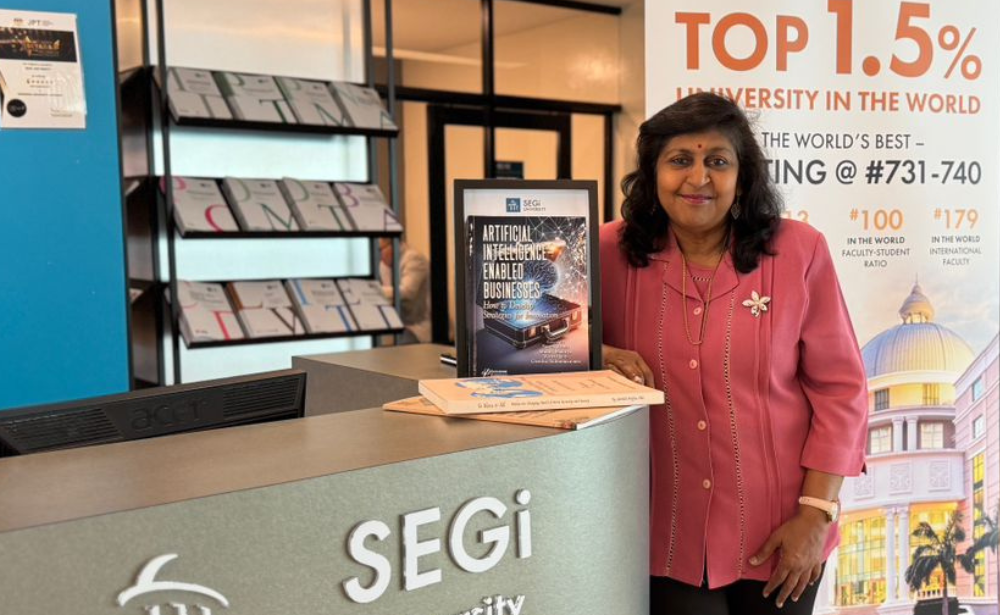A major milestone in Artificial Intelligence scholarship has been achieved with the publication of Artificial Intelligence‐Enabled Businesses: How to Develop Strategies for Innovation, a 26-chapter volume indexed in Scopus by early 2025. This global effort brings together academics from India, China, Malaysia, Australia, Vietnam, and the United States to explore how AI is transforming business innovation, combining theoretical insights with real-world case studies.
The book is co-edited by leading scholars including Professor Geetha Subramaniam from SEGi University’s Faculty of Education, Language, Psychology and Music (FoELPM). Beyond her editorial role, she authored a chapter titled “AI for a Better Future—Perspectives from Young Employees in Malaysia and China” with two of her PhD graduates, and co-authored another with PhD graduate Wu Meng, “Using AI Technology to Enhance Data-Driven Decision-Making in the Financial Sector.” These contributions highlight the faculty’s commitment to engaging postgraduate students in high-impact, globally relevant research.
Artificial Intelligence is no longer confined to laboratories; it is rapidly reshaping global economies. According to PwC, AI could contribute USD 15.7 trillion to the global economy by 2030, with 45% of total economic gains stemming from product enhancements stimulating consumer demand. This book reflects how SEGi academics and students are ensuring Malaysia and the region play a meaningful role in this transformation, offering strategies for businesses and policymakers navigating digital disruption.
The book’s early reception underscores its impact, with 7 citations recorded within months of publication, while Wu Meng’s chapter has already attracted 25 citations in just four months. This rapid uptake is a testament to the cutting-edge relevance of SEGi’s postgraduate research and its alignment with real-world industry challenges, particularly in the financial and technological sectors.
Why does this matter? Because preparing future leaders, entrepreneurs, and researchers to thrive in an AI-driven economy requires not only robust academic frameworks but also actionable strategies that can be applied across industries. By contributing to Scopus-indexed scholarship of this scale, SEGi affirms its role in producing knowledge that drives innovation, supports sustainable economic growth, and equips graduates to compete on a global stage.
This event is organised in support of the following United Nations Sustainable Development Goals (SDG):
SDG 4: Quality Education
SDG 8: Decent Work and Economic Growth
SDG 9: Industry, Innovation and Infrastructure

